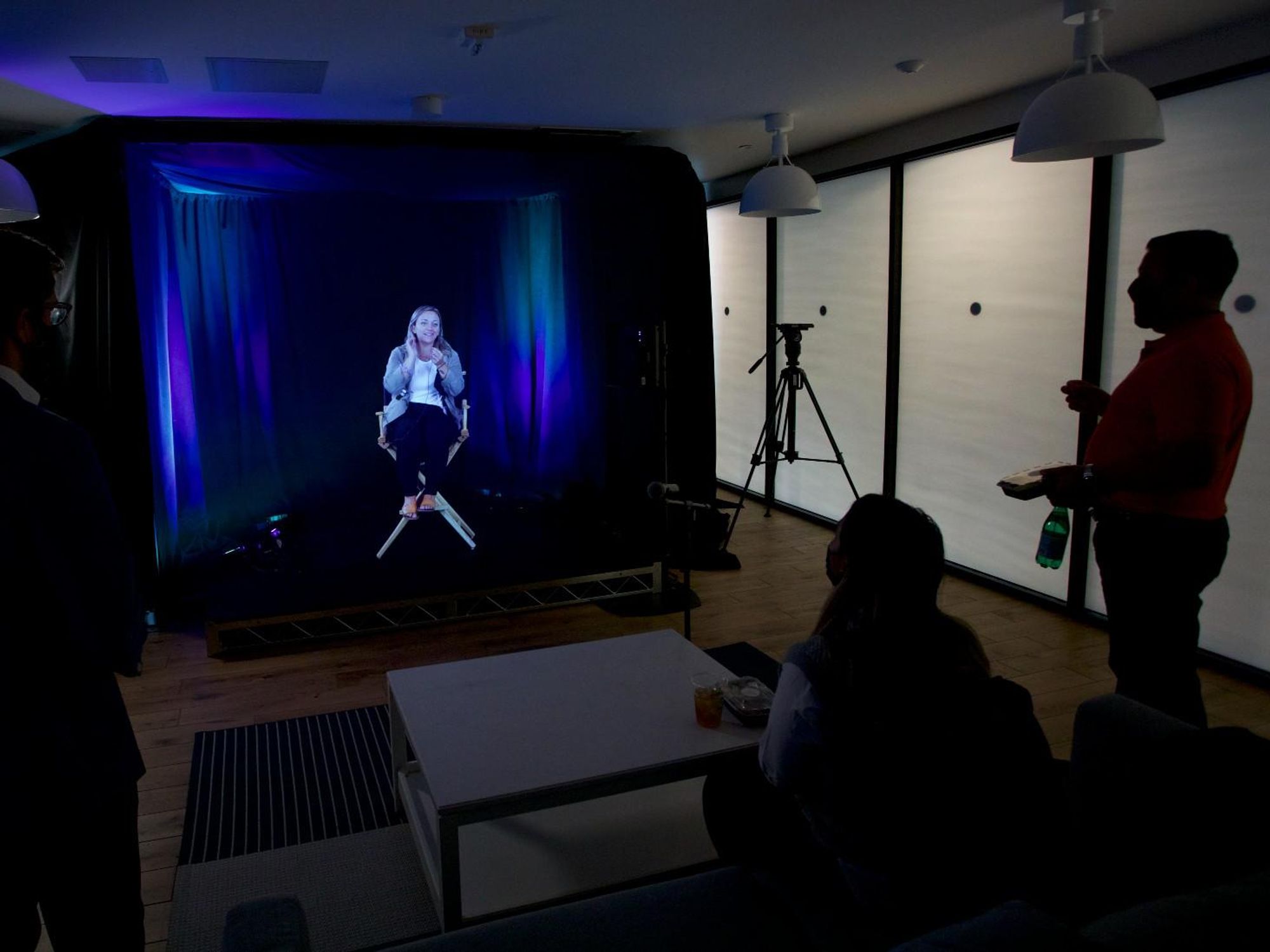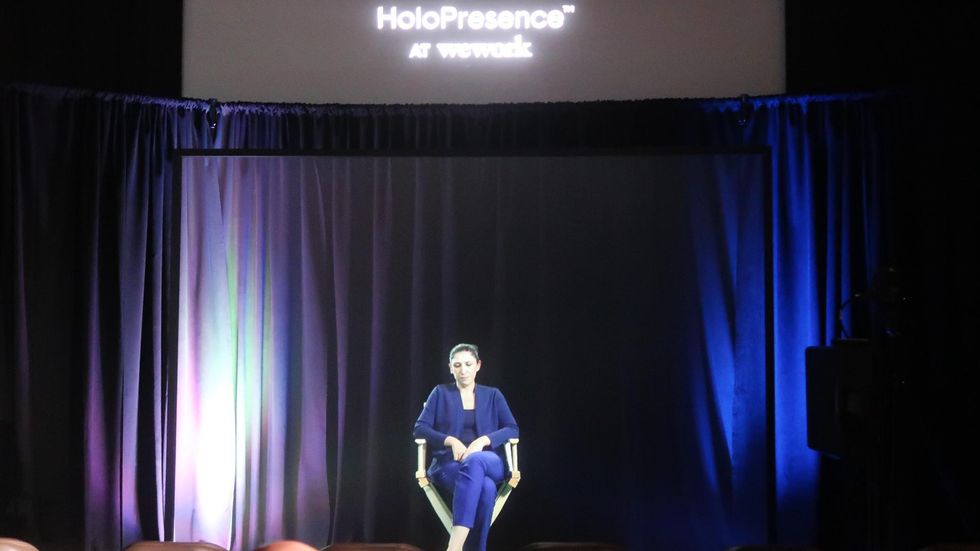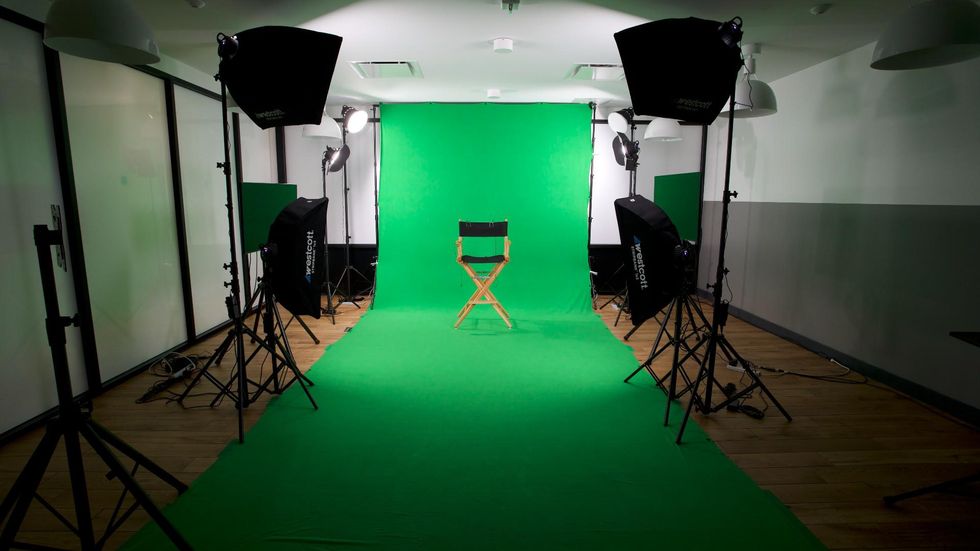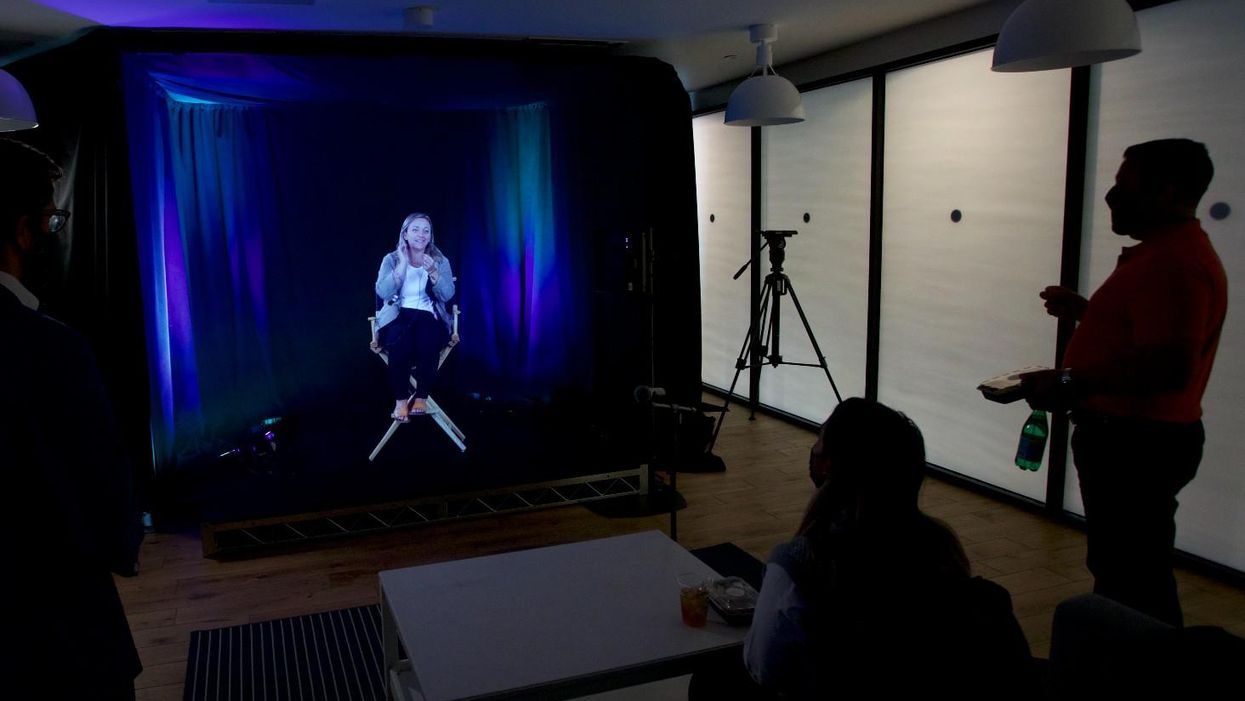What It's Like to Turn Yourself Into a Hologram
Decerry Donato is a reporter at dot.LA. Prior to that, she was an editorial fellow at the company. Decerry received her bachelor's degree in literary journalism from the University of California, Irvine. She continues to write stories to inform the community about issues or events that take place in the L.A. area. On the weekends, she can be found hiking in the Angeles National forest or sifting through racks at your local thrift store.

Standing in a Century City WeWork, I watched as an eerily lifelike hologram was beamed in and silence filled the room.
Once a technology reserved for theater, holograms have become cheaper and more accessible for the masses. So as Zoom became the default office during the pandemic, WeWork turned to ARHT media to create work and conference spaces that didn't require everyone to jam in.
ARHT Media, a Canadian-based hologram company founded in 2012 showcased their technology to press last month. The technology is being made available to WeWork members at the Century City location. It's not inexpensive though and can range in cost from $5,000 to $25,000. But both companies think with the pandemic changing the way business is done, more executives will be willing to spend for the virtual interaction.
As part of the presentation, CEO of ARHT Media, Larry O'Reilly and VP of product extensions at WeWork, Carla D'Alessandro appeared in hologram form.
"I appear life-sized in high resolution, and there's no noticeable latency in the audio. As an audience member, your brain is telling you, 'I'm in the room,'" O'Reilly said.
"That's really what our goal is, to create the illusion that the person is actually in the room with you." (For example, last month ARHT Media beamed in a woman living in London to a wedding ceremony in Canada because she couldn't attend due to COVID-19 travel restrictions.)
ARHT Media created holograms for AT&T, sports channel ESPN, Live Nation Entertainment, among others. As part of their deal with WeWork, HoloPresence will appear in 100 of the coworking giant's office spaces across the globe by the end of 2021 (LA is the first).
HoloPresence allows for an individual to beam into multiple locations at once, as well as beam in speakers from different locations and bring them on stage together as if they are there in person.
The hologram has been around for quite some time. Perhaps most famously, the deceased rapper Tupac Shakur showed up at Coachella in 2012, much to the audience's delight (and shock). "While [the Tupac performance] created a good image, it required a large footprint, took a long time to set up and tear down, and was expensive to deploy," O'Reilly told the small crowd.
By comparison, HoloPresence's technology can be set up in a matter of minutes. Someone opting for the more bare-bones option needs a green screen and a condensed version of what's available at WeWork offices – lights, monitors and a 4K camera. ARHT Media has set up remote studios in professional soccer locker rooms, hotel rooms, and homes. WeWork, will provide the equipment for any customer wishing to use the tech.
Three and a half years ago, it would have cost $85,000 to use HoloPresence for a single session and required eight technicians between the display and capture studio. Today, it takes one technician to be present in each studio for the technology to run smoothly.
To create the holograms the 4K video and audio files are captured, compressed, sent over the internet to Los Angeles and played back to the audience within 0.3 seconds of them speaking.
Here's How it Really Looks
As part of the live demo, WeWork representatives rounded myself and other attendees into groups of five to guide us to their "capture and display studio."
While I waited my turn, I was greeted by lights, and a green screen draped from the ceiling to the floor. The capture studio was reminiscent of photoshoot studios I'd visit before every high school dance.
I sat down in the director's chair, and the technician mic'd me up. I was in awe at how clear and smooth the technology was working. Seeing my hologram for the first time was bizarre because I never thought this was possible. I always thought this type of technology was only used for important people.
When I saw my hologram, it felt like I was looking into a mirror. The hologram of me was so accurate that I was able to see the wrinkles in my shirt, to my overgrown roots, and strands of hair that were out of place.
The biggest "wow" factor for me, there was no latency from what's being recorded and what's being displayed. It feels more engaging than your average Zoom call and you'll no longer encounter the dreaded mute button, or delays between voice and audio sync. I'm really looking forward to seeing this technology widespread as it can eliminate huge travel expenses, reduce carbon footprint and offer a work-life balance.
- LA-Based StoryFile Raises Another Round to Expand Its Interactive ... ›
- NFTs Are Being Used to Give TikTok Dancers Credit, Profit - dot.LA ›
- Jadu Augmented Reality App Turns Artists into Holograms - dot.LA ›
- Proto is Reimagining Hologram Tech at A Hefty Price - dot.LA ›
Decerry Donato is a reporter at dot.LA. Prior to that, she was an editorial fellow at the company. Decerry received her bachelor's degree in literary journalism from the University of California, Irvine. She continues to write stories to inform the community about issues or events that take place in the L.A. area. On the weekends, she can be found hiking in the Angeles National forest or sifting through racks at your local thrift store.






 Image Source: Skyryse
Image Source: Skyryse
 Image Source: Northwood Space
Image Source: Northwood Space